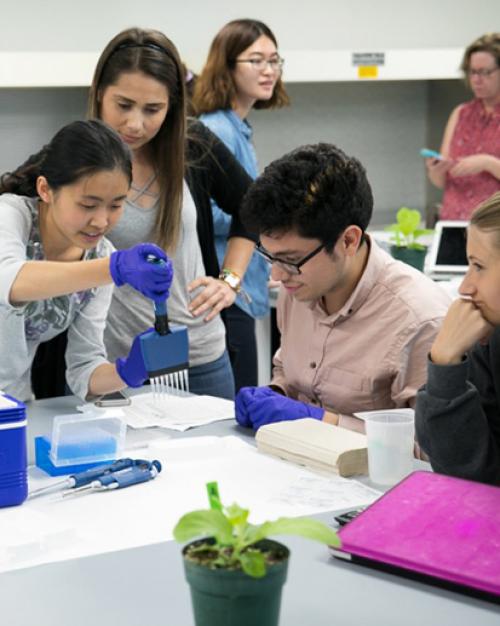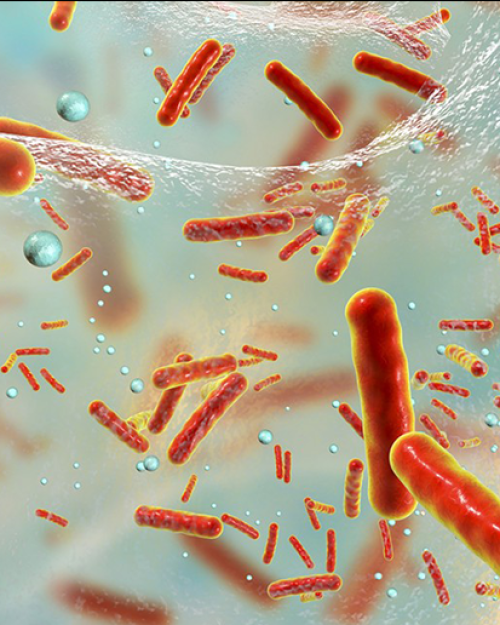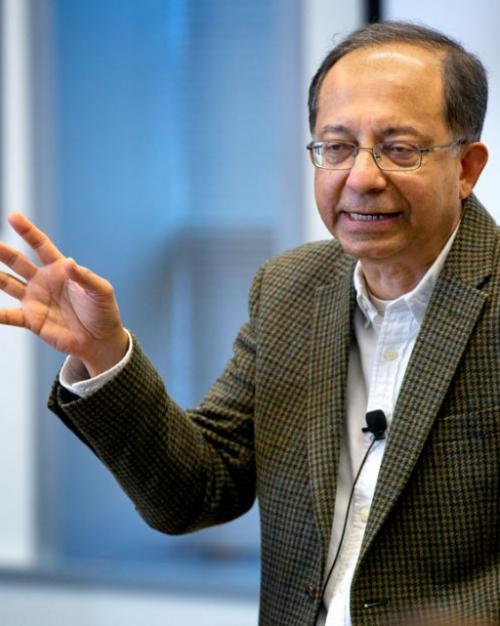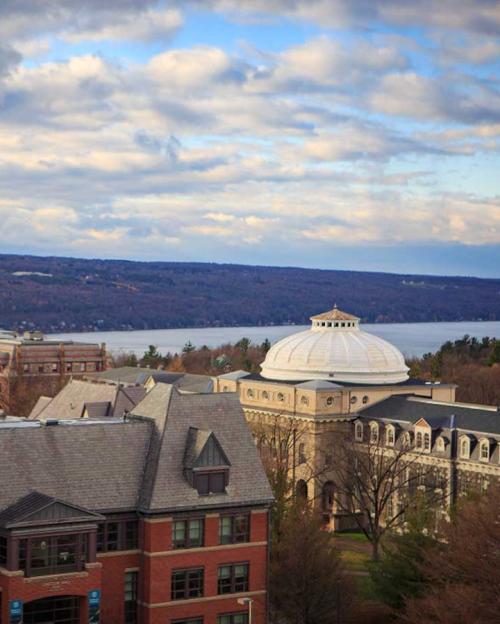Six faculty members in the College of Arts and Sciences are among the 2022 Simons Fellows in Mathematics and Theoretical Physics, announced Feb. 18.
Laurent Saloff-Coste, Michael Stillman and Alex Townsend are among 38 researchers in the United States and Canada honored as Simons Fellows in mathematics. Csaba Csáki, Eun-Ah Kim and Eanna Flanagan are among 10 theoretical physicists named as Simons Fellows this year.
Founded in 1994, the Simons Foundation has a mission to advance the frontiers of research in mathematics and the basic sciences, supporting discovery-driven scientific research undertaken in the pursuit of understanding the phenomena of our universe. The Simons Fellows program extends academic leaves to a full year, enabling recipients to focus solely on research.
“These outstanding physicists and mathematicians are pushing the boundaries of our understanding in areas such as quantum materials, algebraic geometry, numerical analysis, deep learning, particle theory and gravitational physics,” said Ray Jayawardhana, the Harold Tanner Dean of the College of Arts and Sciences. “The fact that Cornell is home to more of this year’s class of Simons Fellows than any other institution speaks to the exceptional caliber of our Arts and Sciences faculty.”
Csaba Csáki, professor of physics, studies elementary particle physics and quantum field theory, focusing on physics beyond the standard model. As a Simons Fellow he plans to study the phases of strongly coupled gauge theories, shedding light on the mechanism of confinement. He also plans to look for novel ways of generating mass hierarchies responsible for the emergence of the weak scale and the masses of elementary particles.
Eanna Flanagan, the Edward L. Nichols Professor of Physics and Professor of Astronomy, works on the physics of strong gravitational fields, developing quantitative models of processes involving neutron stars, black holes and the early universe, which will be useful when compared with data from gravitational wave detectors like the Laser Interferometer Gravitational Wave Observatory (LIGO). Other research topics include the exploration of models of the early universe involving extra dimensions and membranes, and models of the recent acceleration of the universe involving modifications of general relativity.
Eun-Ah Kim, professor of physics, studies theoretical physics of strongly correlated quantum matter. Her research interests lie in the theoretical study of the collective phenomena exhibited by quantum matter, and in understanding how such phenomena emerge from microscopic principles. She has pioneered applying machine learning to quantum matter data. Wielding machine learning tools, she is pushing the envelope of how much theoretical insight can be extracted from complex and big data and how quickly so-obtained theoretical understanding can feedback into experimental decisions.
Laurent Saloff-Coste, the Abram R. Bullis Professor of Mathematics, works on analysis, probability and some aspects of geometry, such as Riemannian geometry and geometric group theory. He studies aspects of heat diffusion on manifolds from the point of view of both partial differential equations and stochastic processes. He is mainly interested in those properties that relate to the large-scale geometry of the underlying space.
Michael Stillman, professor of mathematics, is interested mainly in computational algebra and algebraic geometry, commutative algebra and algebraic geometry, and applying these methods to other fields, including string theory in theoretical physics.
Alex Townsend, associate professor of mathematics, studies numerical analysis, scientific computing and theoretical aspects of deep learning. He is interested in numerical algorithms in applied mathematics, working mainly in novel spectral methods for the solution of differential equations, low-rank techniques and theoretical aspects of deep learning.
Read the story in the Cornell Chronicle.




